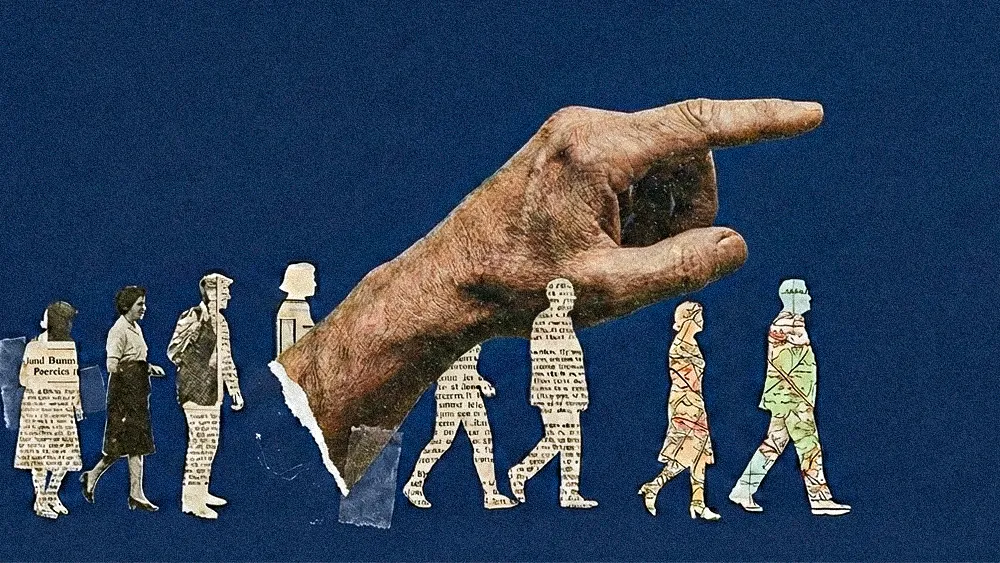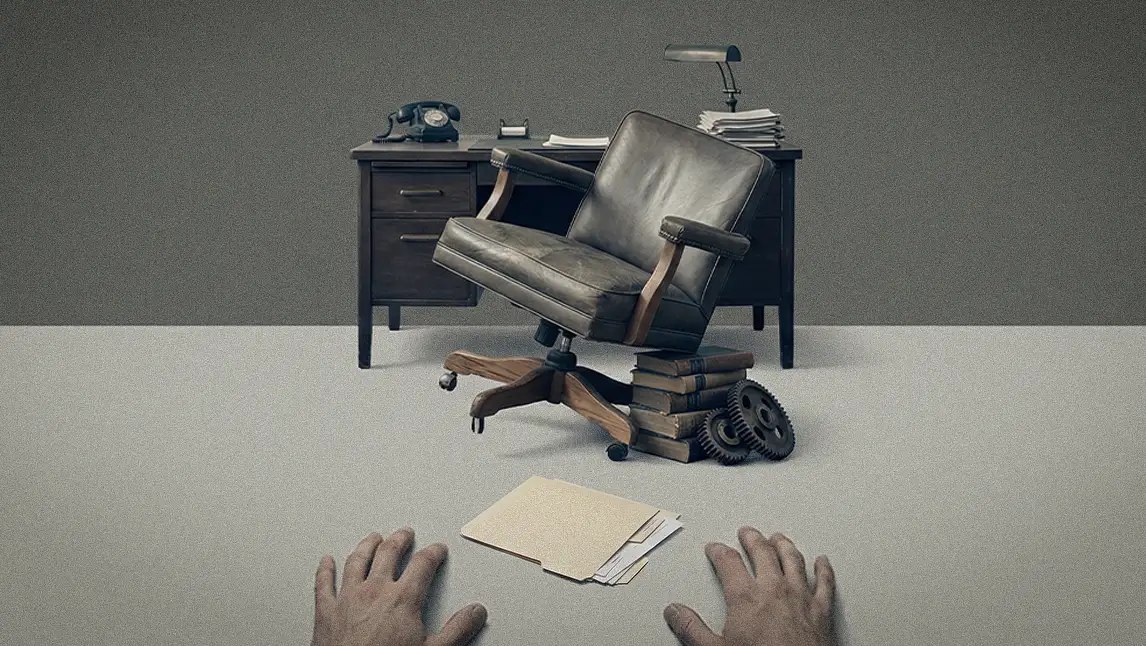Gen Z’s Stand Against Chaos Culture Challenges Employers to Rethink Leadership Norms

Key Points
Many workplaces still treat false urgency and face-time expectations as proof of commitment, creating systems that punish real productivity.
Rachel Ezekiel-Fishbein, Owner of Making Headlines PR, explains how her own agency’s rigidity pushed her out despite award-winning work.
She shows that leaders retain talent by replacing chaos culture with flexibility and support that match employees’ real lives.
We expect and reward people for looking busy. But are we actually rewarding critical thinking and smart work? Wouldn’t we rather people work well and efficiently instead of simply filling their time?

Rachel Ezekiel-Fishbein
Owner
Making Headlines PR
Workplaces have spent years confusing motion with momentum. False urgency became a management style and performative busyness took hold, but now a younger generation is refusing to play along. Though Gen Z’s boundaries are often misread as a lack of ambition, in reality, they’re challenging an outdated idea of commitment and asking why chaos culture ever counted as proof of dedication in the first place.
Rachel Ezekiel-Fishbein is an award-winning public relations strategist, Owner of the Making Headlines PR consultancy, and a Lecturer at The Wharton School. Her distinguished 30-year career isn’t a story of corporate ladder-climbing; it’s the result of her deliberate departure from that very chaos culture. Her journey from a rising star in a rigid agency to an independent leader and educator proves a simple, persistent truth: work cultures that prize “face time” over results risk bleeding top talent.
“We expect and reward people for looking busy. But are we actually rewarding critical thinking and smart work? Wouldn’t we rather people work well and efficiently instead of simply filling their time?” says Ezekiel-Fishbein. Her own career shows exactly how costly that mindset can be.
Early in her career, she saw how quickly organizations confuse presence with performance. Despite winning a major agency award and delivering immense value, she was denied a promotion for not logging enough late-night hours in the office.
Optics over output: “Every night before I left, I checked with my colleagues to see if they needed help and stepped in where I could, but that never counted. What mattered was being seen, not the work itself. I remember thinking, if the only thing that proves commitment is staying late, then the system is built on the wrong measure,” she recalls.
Sayonara, baby: When leadership later blocked a flexible, part-time arrangement after her maternity leave, she left to launch an independent practice and quickly rebuilt her career on her own terms. “The morning after they rejected my request, I cleaned out my office. It was such a foolish, lose-lose move for the agency to make. I filled three days a week with clients in less than twenty-four hours,” Ezekiel-Fishbein says.
Make it a win-win: She believes the best workplaces thrive when leaders recognize what people need and make room for it. “Sometimes leaders forget that when you have someone doing good work for you, someone you’ve taken the time to train, they have options. If you can look at what is important to them, you can find solutions that will serve both you and them.”
Decades later, Ezekiel-Fishbein’s personal stand mirrors a generational movement, where younger employees are increasingly rejecting the very premise that drove her out of the traditional workforce.
A better bargain: “Instead of looking at this generation and thinking of them as lazy or spoiled, I wish we would reflect on the choices we were forced to make in our own lives and ask ourselves: Would we really want other people to have to make those same choices?”
Dues and don’ts: She believes the old rules linger mostly out of habit, not necessity. “Leaders have to lose the ‘pay your dues’ mentality,” explains Ezekiel-Fishbein. “The world has changed, and we have to use the tools at our disposal to create environments that attract smart, creative people and then allow them the freedom to show us their strengths.”
For most workers, flexibility is less a perk and more a lifeline. Life has a way of stacking responsibilities without asking whether the office is ready for them. Ezekiel-Fishbein knows that juggling act well, and her story shows just how personal the case for flexibility really is.
The true stakeholders: “My 30-year-old once told me he was so glad I made the career choices I did. I used to have a screensaver with a message directed at him: You are the impetus for positive change. Without him, I wouldn’t have done it. My second child, 27, has Tourette Syndrome and ADHD. He also has a master’s degree, a thriving career, and a full life. That took immense advocacy. I often think, how could I have given him the support he needed if I had stayed in that traditional system?”
The lesson for leaders, then, may not be a new policy but a new way of thinking. As companies rethink their workplaces for a multigenerational workforce, the story suggests that talent retention may be less about rigid rules and more about a culture that recognizes employees as individuals, providing the flexibility they need to thrive, both in their careers and in their lives.
Leaders have to lose the 'pay your dues' mentality. The world has changed, and we have to use the tools at our disposal to create environments that attract smart, creative people and then allow them the freedom to show us their strengths.

Rachel Ezekiel-Fishbein
Owner
Making Headlines PR
Leaders have to lose the 'pay your dues' mentality. The world has changed, and we have to use the tools at our disposal to create environments that attract smart, creative people and then allow them the freedom to show us their strengths.

Rachel Ezekiel-Fishbein
Owner
Making Headlines PR
Related articles
TL;DR
Many workplaces still treat false urgency and face-time expectations as proof of commitment, creating systems that punish real productivity.
Rachel Ezekiel-Fishbein, Owner of Making Headlines PR, explains how her own agency’s rigidity pushed her out despite award-winning work.
She shows that leaders retain talent by replacing chaos culture with flexibility and support that match employees’ real lives.

Rachel Ezekiel-Fishbein
Making Headlines PR
Owner

Owner
Workplaces have spent years confusing motion with momentum. False urgency became a management style and performative busyness took hold, but now a younger generation is refusing to play along. Though Gen Z’s boundaries are often misread as a lack of ambition, in reality, they’re challenging an outdated idea of commitment and asking why chaos culture ever counted as proof of dedication in the first place.
Rachel Ezekiel-Fishbein is an award-winning public relations strategist, Owner of the Making Headlines PR consultancy, and a Lecturer at The Wharton School. Her distinguished 30-year career isn’t a story of corporate ladder-climbing; it’s the result of her deliberate departure from that very chaos culture. Her journey from a rising star in a rigid agency to an independent leader and educator proves a simple, persistent truth: work cultures that prize “face time” over results risk bleeding top talent.
“We expect and reward people for looking busy. But are we actually rewarding critical thinking and smart work? Wouldn’t we rather people work well and efficiently instead of simply filling their time?” says Ezekiel-Fishbein. Her own career shows exactly how costly that mindset can be.
Early in her career, she saw how quickly organizations confuse presence with performance. Despite winning a major agency award and delivering immense value, she was denied a promotion for not logging enough late-night hours in the office.
Optics over output: “Every night before I left, I checked with my colleagues to see if they needed help and stepped in where I could, but that never counted. What mattered was being seen, not the work itself. I remember thinking, if the only thing that proves commitment is staying late, then the system is built on the wrong measure,” she recalls.
Sayonara, baby: When leadership later blocked a flexible, part-time arrangement after her maternity leave, she left to launch an independent practice and quickly rebuilt her career on her own terms. “The morning after they rejected my request, I cleaned out my office. It was such a foolish, lose-lose move for the agency to make. I filled three days a week with clients in less than twenty-four hours,” Ezekiel-Fishbein says.
Make it a win-win: She believes the best workplaces thrive when leaders recognize what people need and make room for it. “Sometimes leaders forget that when you have someone doing good work for you, someone you’ve taken the time to train, they have options. If you can look at what is important to them, you can find solutions that will serve both you and them.”

Rachel Ezekiel-Fishbein
Making Headlines PR
Owner

Owner
Decades later, Ezekiel-Fishbein’s personal stand mirrors a generational movement, where younger employees are increasingly rejecting the very premise that drove her out of the traditional workforce.
A better bargain: “Instead of looking at this generation and thinking of them as lazy or spoiled, I wish we would reflect on the choices we were forced to make in our own lives and ask ourselves: Would we really want other people to have to make those same choices?”
Dues and don’ts: She believes the old rules linger mostly out of habit, not necessity. “Leaders have to lose the ‘pay your dues’ mentality,” explains Ezekiel-Fishbein. “The world has changed, and we have to use the tools at our disposal to create environments that attract smart, creative people and then allow them the freedom to show us their strengths.”
For most workers, flexibility is less a perk and more a lifeline. Life has a way of stacking responsibilities without asking whether the office is ready for them. Ezekiel-Fishbein knows that juggling act well, and her story shows just how personal the case for flexibility really is.
The true stakeholders: “My 30-year-old once told me he was so glad I made the career choices I did. I used to have a screensaver with a message directed at him: You are the impetus for positive change. Without him, I wouldn’t have done it. My second child, 27, has Tourette Syndrome and ADHD. He also has a master’s degree, a thriving career, and a full life. That took immense advocacy. I often think, how could I have given him the support he needed if I had stayed in that traditional system?”
The lesson for leaders, then, may not be a new policy but a new way of thinking. As companies rethink their workplaces for a multigenerational workforce, the story suggests that talent retention may be less about rigid rules and more about a culture that recognizes employees as individuals, providing the flexibility they need to thrive, both in their careers and in their lives.




